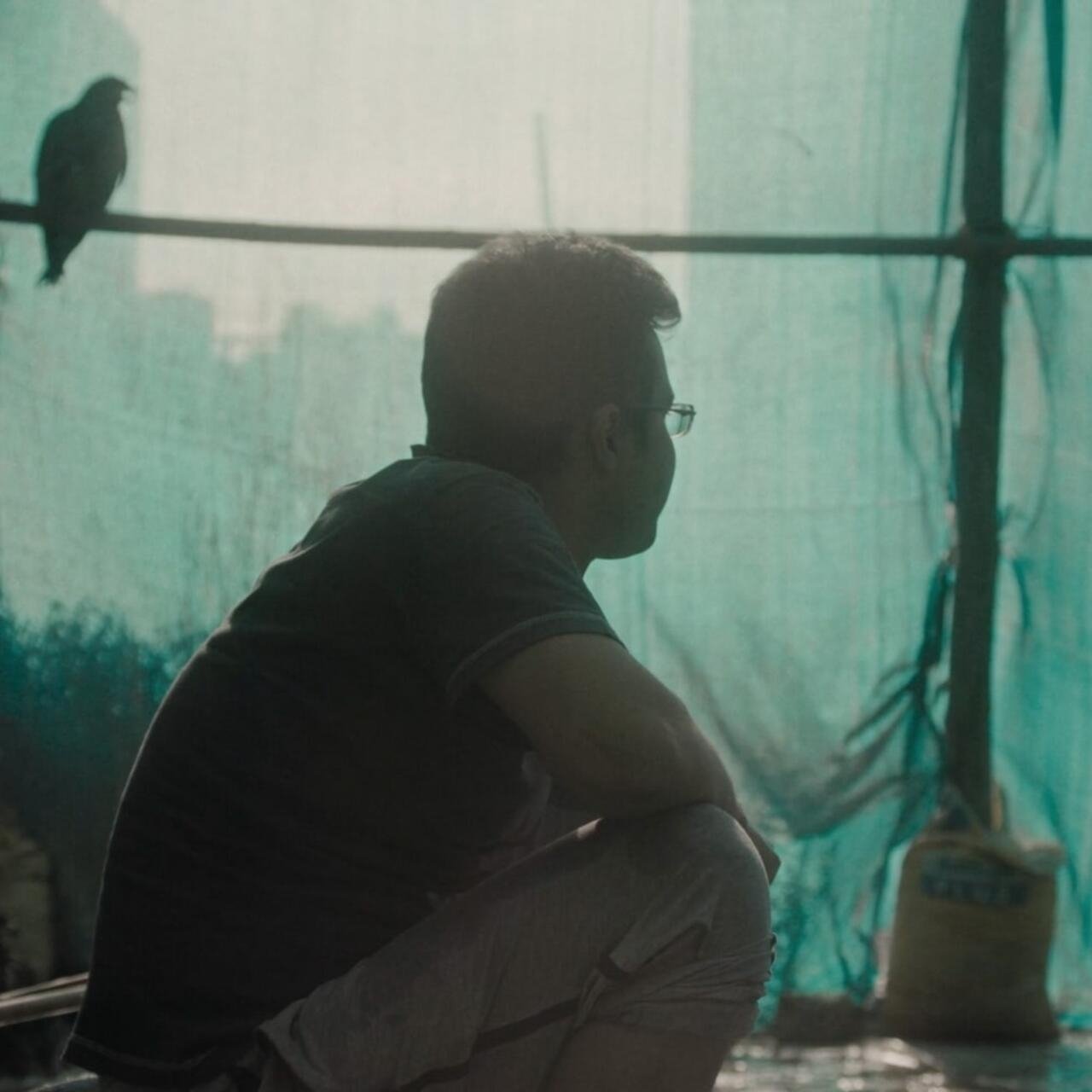Detanglement
Shaunak Sen is a miniaturist. Largeness and minitude take on unearthly semiotics inside a single frame. In his latest documentary venture, All That Breathes, which centres on two Muslim brothers and their cousin who set up a hospital to treat kites in their home in North Delhi, creatures bear no stable point of reference: a rat is the size of a cow; a kite’s eye, marble like. You might think: horror. You might shudder at the grotesquerie. But all it is, we learn later on, is a ruinous entanglement, or kinship. Zindagi khud ek rishtedari hai. Life is in kinship with itself.
A still from All That Breathes. Source.
The film is affected by an expansive, dreamy quality; the spaciousness deepened only by the contrasts between the cramped rooms of the brothers’ Delhi flat, and the vast swathes of sky. When the kites fly, you don’t see the effort, one brother notes. The effort in watching Sen’s visuals is similar. My eyes glide over his edits, like satin. Tracked along the narrative of the brothers and their daily labours to heal the birds and care for them are close-ups of the birds, and other animals; their soft, beautiful, charcoal-coloured wings, their beaks curved like an infant’s fingers. The cinematography is led by their rhythms, rather remarkably; that rare case when form-dictates-content feels urgent, as a truism. The camera’s gaze brushes the birds, in particular, with a warm, artificial hue, because such intimacy with those we learn to consider other to us, across caste and species—humans who eat meat, birds that eat filth—cannot be refused without great cost to our souls. If we look too harshly, we cannot look at ourselves again.
And perhaps we shouldn’t. In Sen’s film, the cruelty of human life is not a gimmick but reckless meditation. His camera alienates what is most familiar, and urges us to look again: at a dumping ground teeming with fresh food, for instance, or a cardboard box that jostles to life. An aerial shot reveals a cluster of heavy black wings clumped in the centre of a barsati: birds of prey who have fallen prey to Delhi’s pollution, kite flying and other terrible but now normalised behaviours of the environment. The brothers look away moodily; the same brothers who murmur that Delhi is a gaping wound and their endeavour to mend the birds is but a tiny bandaid. Taxidermy, I thought wildly, because I could not bear to think: these birds fell from the sky because they stopped breathing. Just as difficult to watch, though, is the brothers worrying for the safety of their families as Delhi burned in the anti-Muslim pogrom of 2020.
Perhaps the only way one can become a viewer whose gaze matches what Sen, in the post-show talk at the LFF last week called “the spectatorial contract” of the film, is to rid ourselves of the neoliberal metamorphoses of entanglement and its appropriation by communal ideologies. It is to forgive the injustice of scale without condoning it, and look as the birds do: straight into the eye of the camera, unerringly alive, owning one’s innate capacity for destroying life, and in turn, succumbing to it.
